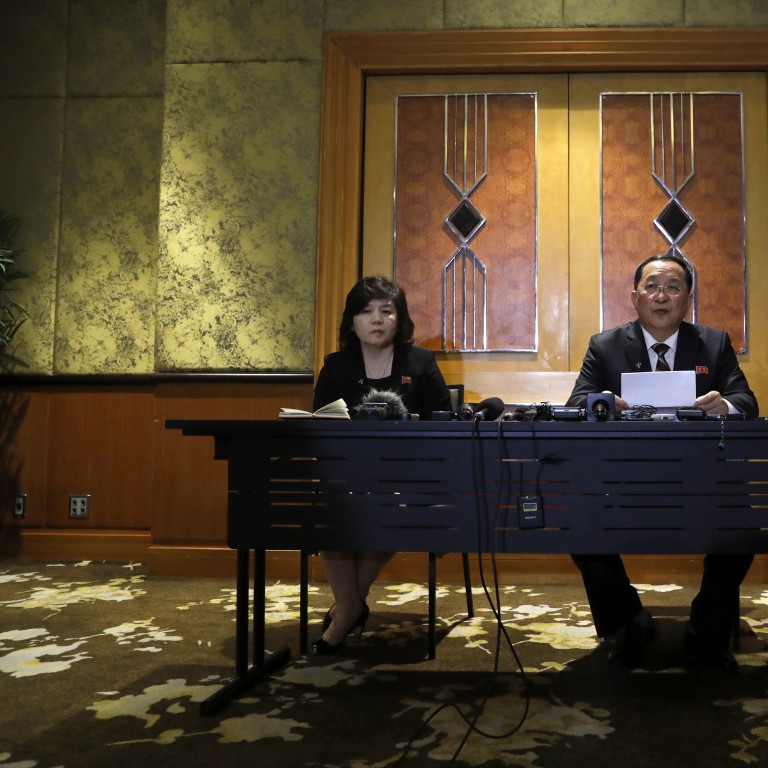
Trump-Kim summit 2019: North Korea stages late-night press conference to deny US president’s claims about why summit ended
- North Korea’s Foreign Minister Ri Yong-ho says that contrary to Trump’s claims, Pyongyang only sought partial sanctions relief but offered to dismantle reactor
- Trump earlier said he ‘had to walk’ from summit because Kim Jong-un wanted sanctions ‘lifted in their entirety’ before moving on weapons
North Korea’s Foreign Minister Ri Yong-ho said at the unusual media event that Pyongyang had made “realistic” proposals, including dismantling its Yongbyon nuclear complex.
Ri said North Korea asked Washington in return to partially lift sanctions, not entirely, contradicting Trump’s earlier claim.
Trump-Kim summit 2019: day 2 as it happened
“Basically they wanted the sanctions lifted in their entirety, but we couldn’t do that … we had to walk away from it,” Trump had said after the two sides cancelled a planned signing ceremony. “Sometimes you have to walk, and this was just one of those times.”
But Ri said that was untrue.
“What we have asked for was partial lifting of sanctions, not entirely. In detail, we asked to lift five sanctions that were imposed within 2016 and 2017, out of a total of 11 sanctions, which would affect ordinary people’s economy and life,” Ri said at the abruptly scheduled press conference.
The two leaders also skipped a working lunch, and Trump moved his briefing to journalists forward by two hours. He said his decision not to strike some kind of agreement showed his preference to “do it right, rather than do it fast”, and was a rebuke to critics who said he was being too soft on the hermit kingdom’s leader.
Kim returned to his hotel soon after the White House announced the abrupt change of plans.
Ri said at the later press conference that Pyongyang had offered to permanently dismantle all its nuclear material production including plutonium and uranium while observed by US experts.
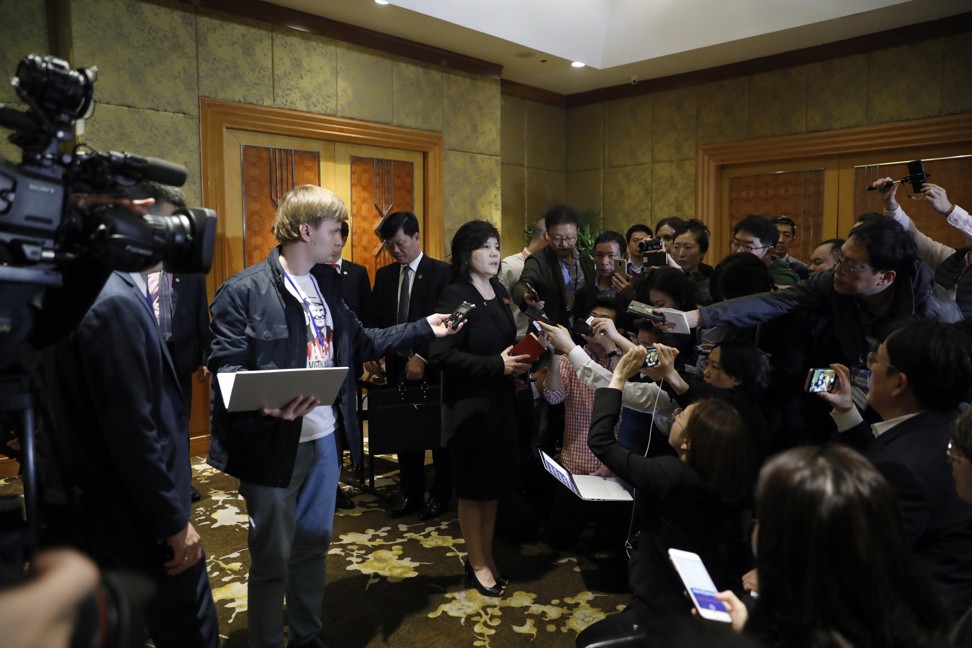
While Trump left for Washington on Thursday afternoon, Kim will stay on in Vietnam until Saturday for an official visit.
The US president said the lack of agreement did not mean a breakdown in ties with the North Korean leader, telling reporters, “I trust him”. Trump said Kim had given him assurances that he would not do any testing or “anything to do with nuclear activities”.
At the end, however, differences between their positions appeared too big for any sort of fresh accord.
The two-day meeting in Hanoi was meant to build on the summit in Singapore last June. That get-together marked the first meeting of sitting leaders of the United States and North Korea since the end of hostilities in the Korean war.
In Singapore, the two leaders had agreed on a vague declaration of their commitment to a full denuclearisation of the Korean peninsula – a key demand of the international community before United Nations sanctions against the impoverished country are lifted.
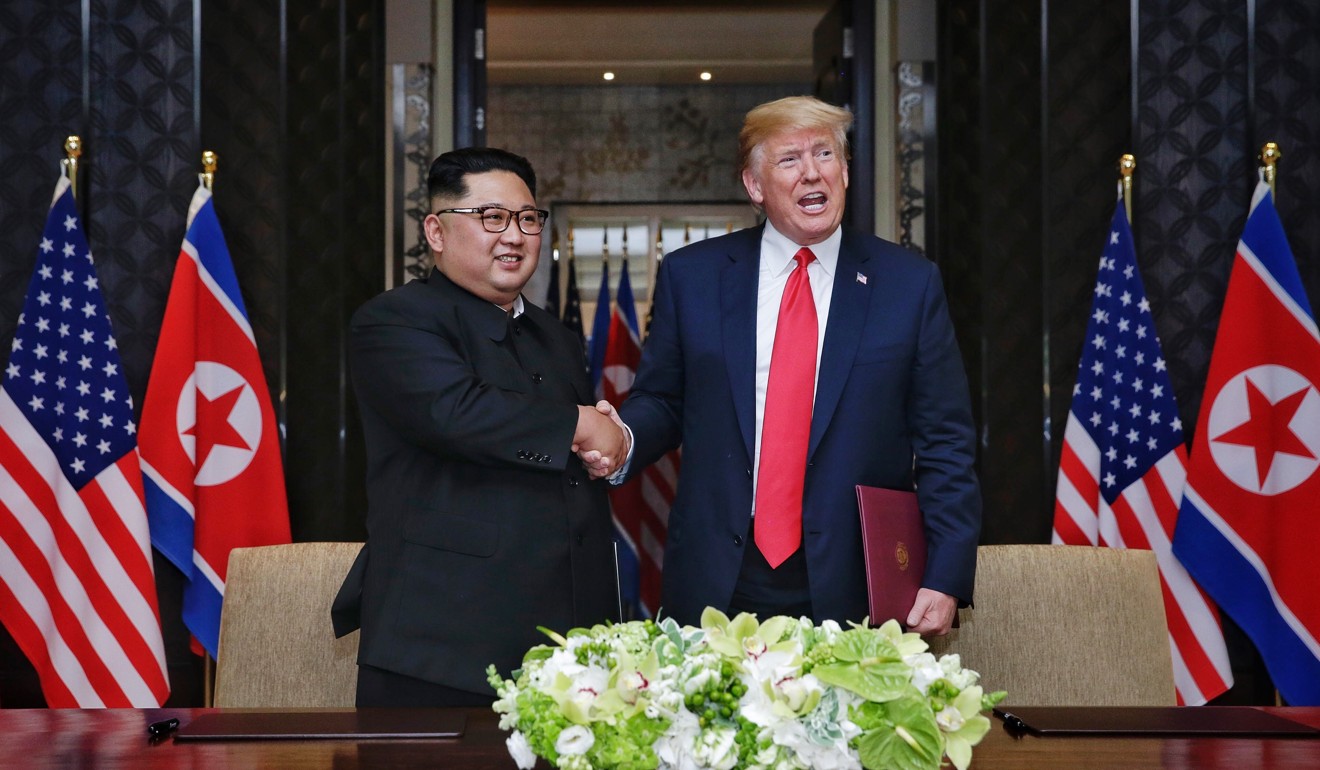
While few experts believed that would be achieved at the Hanoi summit, many expected there would at least be some progress.
In his press conference, Trump acknowledged that the two sides did not see eye to eye on central issues surrounding the denuclearisation process.
Trump says Xi could be ‘more helpful’ on North Korea
“With time I think it’ll be bridged at a certain point, but there is a gap,” he said.
Trump suggested that Kim only wanted to de-activate unimportant nuclear facilities in his country.
“He wants to just do areas that are less important than the areas that we want,” Trump said. “We know the country very well, believe it or not. We know every inch of that country, and we have to get what we have to get.”
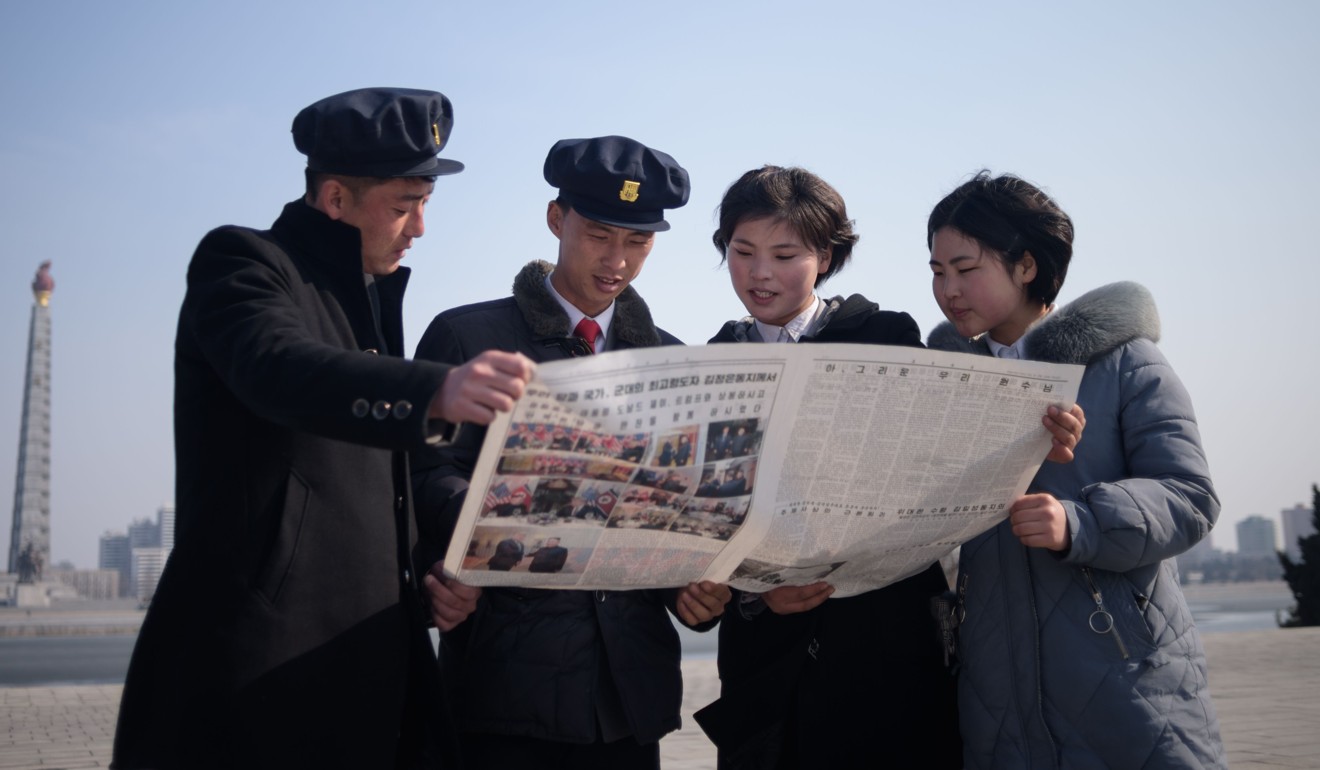
There had been little sign the leaders were locked in disagreement when they spoke to the media earlier in the day, and during their dinner on Wednesday.
“We had a good discussion last night at dinner and pre-dinner was very good. We had a lot of great ideas being brought about … I think [North Korea] is going to be an economic powerhouse,” Trump said before a one-on-one meeting on Thursday.
Kim had struck a similar tone: “We have made a lot of efforts so far, and we thought that now is the time to come to Hanoi to sit together and then have this wonderful dialogue … and let me assure you, I’ll do all my best to bring a good result, ultimately, today.”
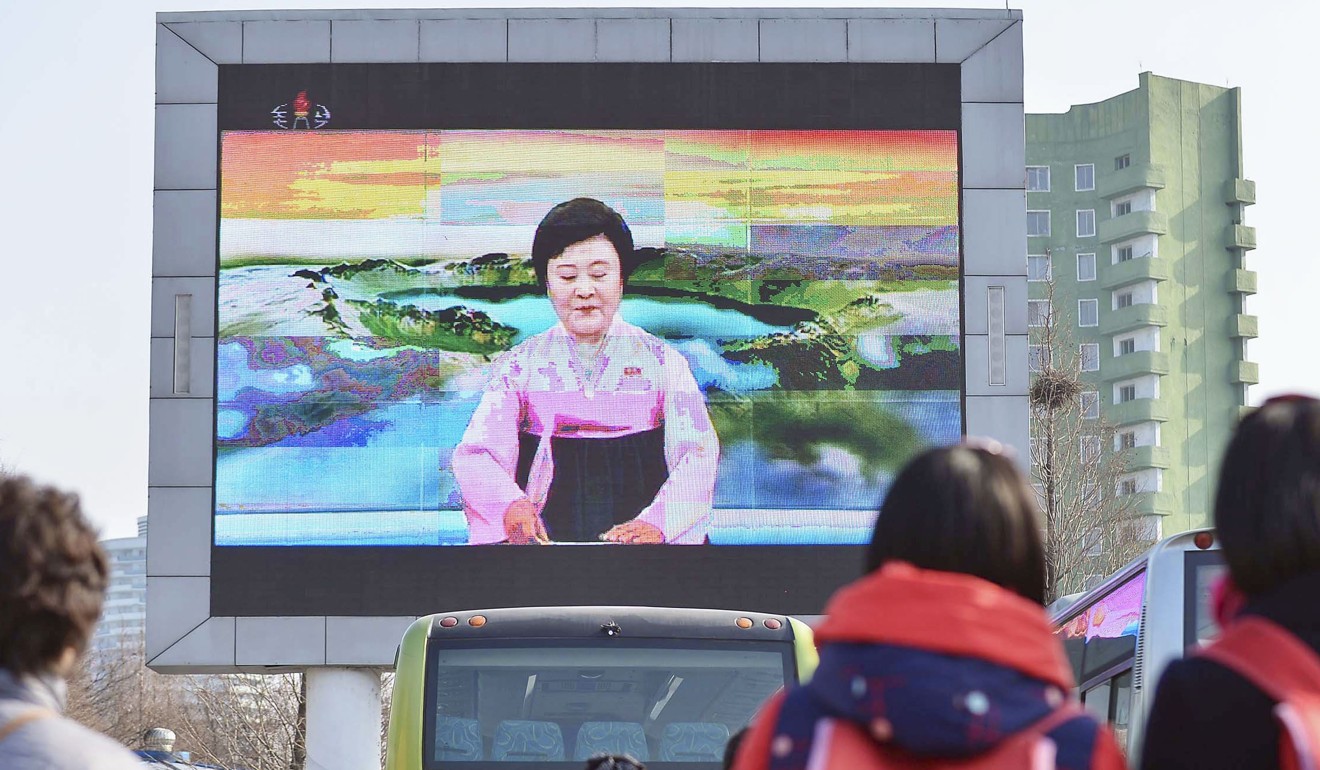
The North Korean leader added at the beginning of a subsequent expanded meeting with aides that he would not have come to Hanoi unless he wanted to denuclearise.
Kim broke from past practice and took questions from foreign journalists in the press pool.
At one point he quipped to Trump about the reporters, who were shouting questions at him: “They are quite anxious”.
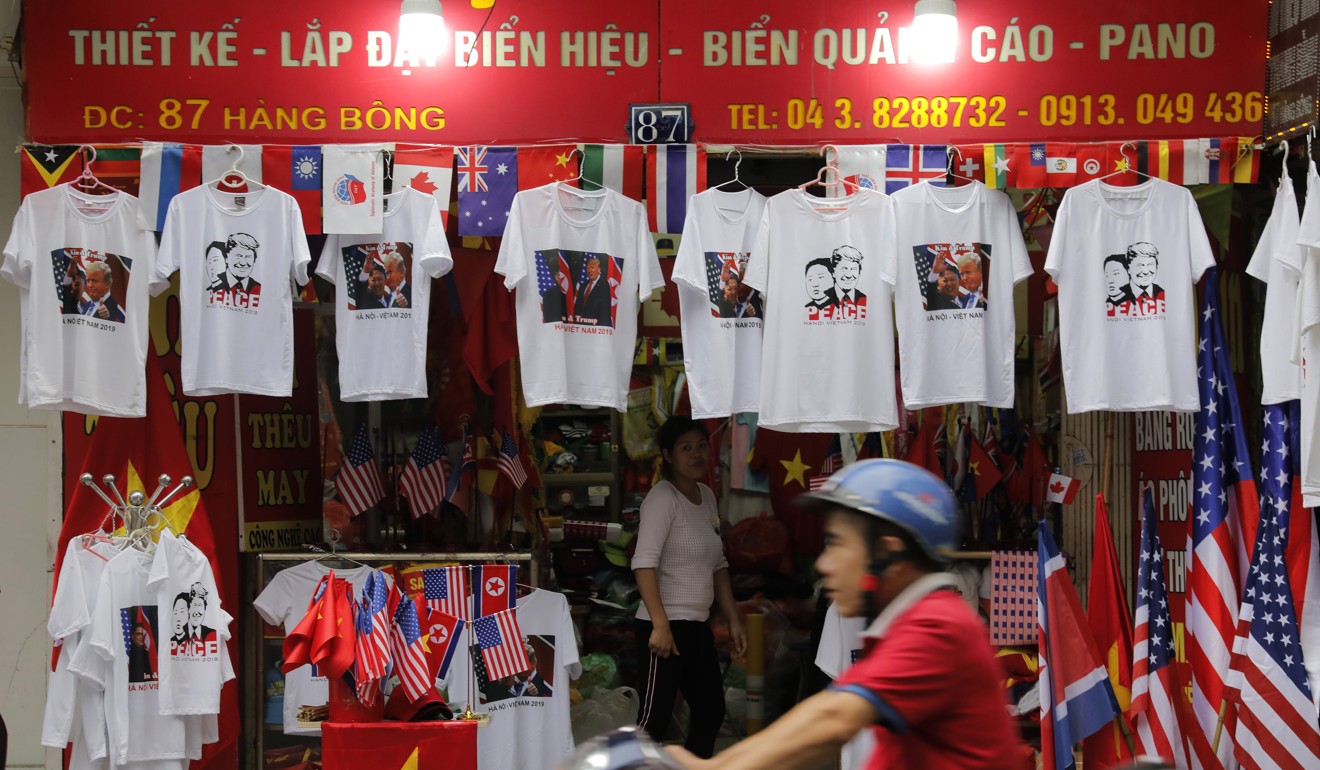
The president lightheartedly warned reporters not to raise their voice at the North Korean leader, saying, “This is not Trump.”
Anwita Basu, an analyst with The Economist Intelligence Unit, said Thursday’s developments raised big questions about the future of US-North Korea relations – which have been on the mend since late 2017, when Kim halted missile tests.
Trump says Xi could be ‘more helpful’ on North Korea
“The abrupt breakdown of talks was not within our expectations and the event as a result raises uncertainty around sustained peace in the Korean peninsula,” said Anwita, the consultancy’s Asia country risk service manager.
Reaction from China and South Korea, two key players in the denuclearisation process, was measured.
Chinese Foreign Ministry spokesman Lu Kang said at least the parties had “returned to the correct track” of solving problems through political means.
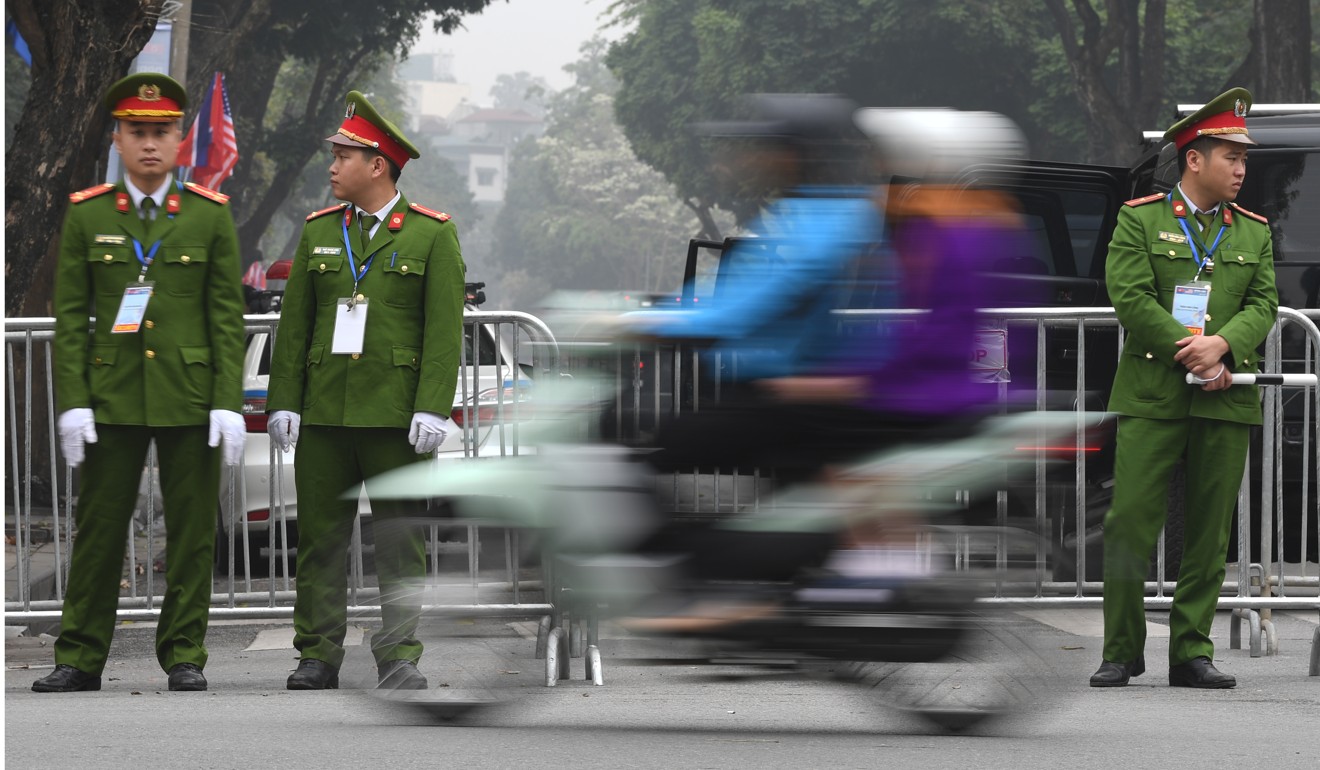
He said: “This result is not easy to achieve and should be treasured. The development of the Korean peninsula over the past decades has told us that dialogue and consultation is the only way out.”
American culture in North Korea: would you like fries with that?
The state news agency, KCNA, meanwhile, reported after the summit ended that a North Korean delegation led by Vice-Minister Ri Kil-song had left for China.
Additional reporting by Agence France-Presse and Kyodo


